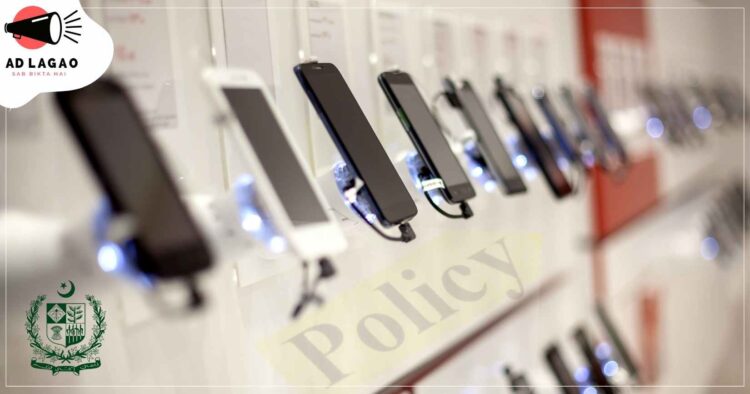Pakistan’s Ministry of Information Technology and Telecommunications has announced the “Mobile Phone Financing Policy,” which is a ground-breaking plan. The draft policy, which will be shown to interested parties next week, aims to make payment plans for mobile phones more available to more people.
Background of the Policy On Mobile Phones
The Ministry for Information Technology and Telecommunications (MoITT) has approved the “Smart Phone Financing Policy” to assist more people in going online. Even though some important people were worried at first, caretaker IT minister Dr. Umar Saif is still determined to follow through with the policy. This will start a new era in Pakistan where everyone can buy a mobile phone.
Key Highlights
Shared Draft Policy:
This coming week, the draft policy will be shared with officials from mobile phone companies and fintech companies. This is a very important step toward putting it into action.
Confidence in Policy:
During a press conference, Dr. Umar Saif said he was confident in the policy and promised good changes for cell phone access through easy payment plans.
Why is it needed?
Four out of ten (48%) of Pakistan’s 190 million smartphone users still use old 2G phones, which hurts the country’s digital competitiveness and internet access. The strategy aims to fix this by making more people digitally included and encouraging people to own smartphones.
Challenges Overcome
Mobile phone funding has been hard to set up in Pakistan, even though it is a common practice in other countries. Telco’s have been hesitant because they are worried about working with banks, getting too much attention, and customers who aren’t loyal.
Latest Market Trends
In Pakistan, the average price of a cell phone has gone up by $30 in the last three years. This is partly because the rupee has lost value. Problems like unsecured mobile phone loans and the popularity of “jailbreak” technologies have made it take longer to put these financial plans into action.
Government’s Approach
Together with the Pakistan Telecommunication Authority (PTA), the Ministry of IT&T is developing a way to block the IMEIs of mobile phones whose owners don’t pay their bills on time. This move is meant to protect investors from defaults and make sure the strategy works.
Industry Response and Initiatives
Telecom Companies:
Some telecom companies aren’t sure about a central system that would block the SIM cards of people who don’t pay, but they are excited about the idea of selling mobile phones on payment plans.
Banking Sector:
The banking industry is worried about how much it costs to handle mobile phone loans.
Jazz Initiative:
Jazz, a major telecommunications company, has already taken action with its “Jazz Digit 4G” a la carte handset payment program, which works with KistPay.
Launching of Policies
The MoITT is likely to go ahead with policy implementation even though there is opposition. This is because the policy can speed up digitization and is in line with the GSMA’s vision of a “mobile phone for all.” The impending notice demonstrates Pakistan’s dedication to closing the digital divide.
Impacts on the Economy
The government thinks that this policy will not only encourage more new mobile phones to be made in Pakistan, but it will also help the Federal Board of Revenue (FBR) collect more taxes.
Global Outreach
Talks are going on to figure out the requirements for possibly exporting mobile phones to Rwanda. This shows that Pakistan is committed to technological progress on a global level.
Conclusion
The ‘Mobile Phone Financing Policy’ is about to change the way people in Pakistan own mobile phones, which will help more people get online and the economy grow. As the government takes bold steps to close the digital divide, its strategy shows that it wants to make sure that technology works for everyone.

 Animals
Animals  Bikes
Bikes  Books, Sports & Hobbies
Books, Sports & Hobbies  Electronics & Home Appliances
Electronics & Home Appliances  Fashion & Beauty
Fashion & Beauty  Furniture & Home Decor
Furniture & Home Decor  Industrial & Agriculture
Industrial & Agriculture  Jobs
Jobs  Kids Toys
Kids Toys  Phones
Phones  Property for Rent
Property for Rent  Property for Sale
Property for Sale  Services
Services  Vehicles
Vehicles 



